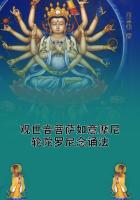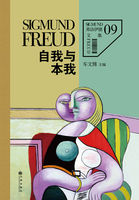Ramsay makes the following remark against Ricardo: ". . . He seems always to consider the whole produce as divided between wages and profits, forgetting the part necessary for replacing fixed capital." ( An Essay on the Distribution of Wealth , Edinburgh, 1836, p. 174.) By fixed capital Ramsay means the same thing that I mean by constant capital: "Fixed capital exists in a form in which, though assisting to raise the future commodity, it does not maintain labourers." ( Ibid ., p. 59.)Adam Smith opposed the necessary conclusion of his resolution of the value of commodities, and therefore also of the value of the social annual product into wages and surplus-value and therefore into mere revenue --the conclusion that in this event the entire annual product might be consumed.
It is never the original thinkers that draw the absurd conclusions. They leave that to the Says and MacCullochs.
Say, indeed, settles the matter easy enough. That which is an advance of capital for one, is or was a revenue and net product for another. The difference between the gross and the net product is purely subjective, and "thus the total value of all products, has been distributed in society as revenue." (Say, Traitè d' Economie Politique , 1817, II, p. 64.) "The total value of every product is composed of the profits of the landowners, the capitalists, and those who ply industrial trades" [wages figure here as profits des industrieux !] "who have contributed towards its production. This makes the revenue of society equal to the gross value produced , not equal to the net products of the soil, as was believed by the sect of the economists" [the physiocrats]. (P. 63.)Among others, Proudhon has appropriated this discovery of Say.
Storch, who likewise accepts Adam Smith's doctrine in principle, finds however that Say's practical application of it does not hold water. "If it is admitted that the revenue of a nation is equal to its gross product, i.e., that no capital" [it should say: no constant capital] "is to be deducted, then it must also be admitted that this nation may consume unproductively the entire value of its annual product without the least detriment to its future revenue. . . . The products which represent the" [constant] "capital of a nation are not consumable." (Storch, Considerations sur la nature du revenu national , Paris, 1824, pp. 147, 150.)However, Storch forgot to tell us how the existence of this constant portion of capital harmonises with the Smithian analysis of prices accepted by him, according to which the value of commodities contains only wages and surplus-value, but no part of any constant capital. He realises only through Say that this analysis of prices leads to absurd results, and his own last word on the subject is "that it is impossible to resolve the necessary price into its simplest elements." ( Cours d'Economie Politique , Petersburg, 1815, II, p. 141.)Sismondi, who occupies himself particularly with the relation of capital to revenue, and in actual fact makes the peculiar formulation of this relation the differentia specifica of his Nouveaux Principes , did not say one scientific word, did not contribute one iota to the clarification of the problem.
Barton, Ramsay, and Cherbuliez attempt to go beyond the formulation of Adam Smith. They founder because they pose the problem one-sidedly from the outset by failing to make clear the distinction between constant and variable capital-value and between fixed and circulating capital.
John Stuart Mill likewise reproduces, with his usual pomposity, the doctrine handed down by Adam Smith to his followers. As a result, the Smithian confusion of thought persists to this hour and his dogma is one of the orthodox articles of faith of Political Economy.
NOTES
[35] Beginning of Manuscript VIII. -- F.
E.
[36] Kapital , Band I, 2. Ausgabe, S.
612, Note 32. [Eng. ed., Moscow, 1954, p. 591, Note 1.]
[37] Some physiocrats had paved the way for him even here, especially Turgot. The latter uses the term capital for avances more frequently than Quesnay and the other physiocrats and identifies still more the avances , or capitaux , of the manufacturers with those of the farmers. For instance: "Like these (the entrepreneurs-manufacturers), they ( les fermiers , i.e., the capitalist farmers) must receive in addition to returning capitals, etc." (Turgot, Oeuvres , Daire edition, Paris, 1844, Vol. I, p. 40.)[38] In order that the reader may not misconstrue the meaning of the phrase "the price of the far greater part of commodities,"the following shows how Adam Smith himself explains this term. For instance, no rent enters into the price of sea fish, only wages and profit, only wages enter into the price of Scotch pebbles. He says: "In some parts of Scotland a few poor people make a trade of gathering, along the sea-shore, those little variegated stones commonly known by the name of Scotch pebbles.
The price which is paid to them by the stone-cutter is altogether the wages of their labour; neither rent nor profit makes any part of it."[39] I reproduce this sentence verbatim from the manuscript, although it seems to contradict, in its present context, both what precedes and immediately follow. This apparent contradiction is resolved further down in No. 4: Capital and Revenue in Adam Smith. -- F. E.
[40] We ignore the fact that Adam Smith was here particularly unfortunate in the choice of his example. The value of the corn resolves itself into wages, profit, and rent only because the food consumed by the labouring cattle is depicted as wages of the labouring cattle, and the labouring cattle as wage-labourers, so that the wage-labourer on his part is also depicted as labouring cattle. (Added from the Manuscript II. -- F. E. )[41] From here to the end of the chapter, a supplement from Manuscript II. -- F. E.















